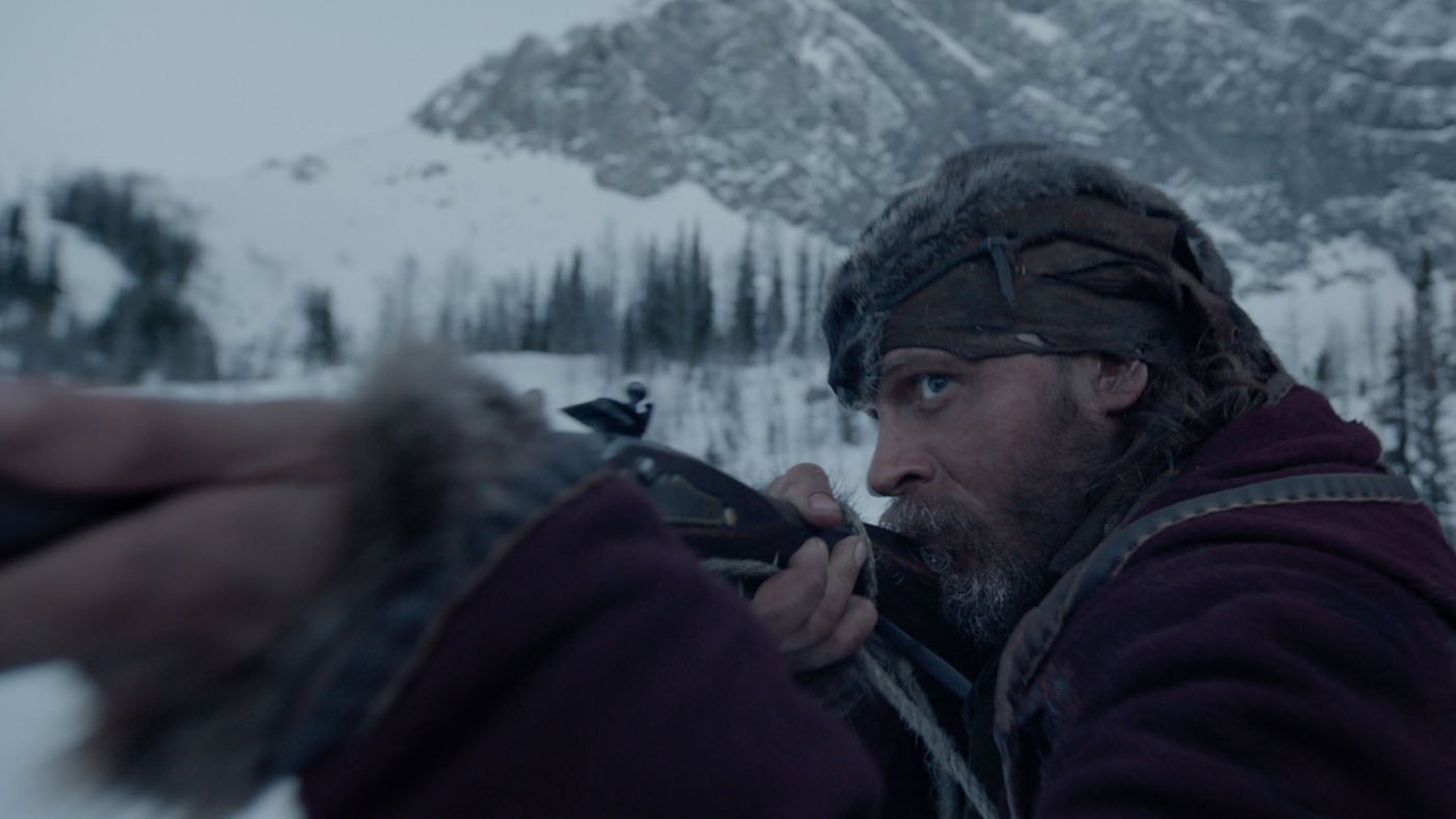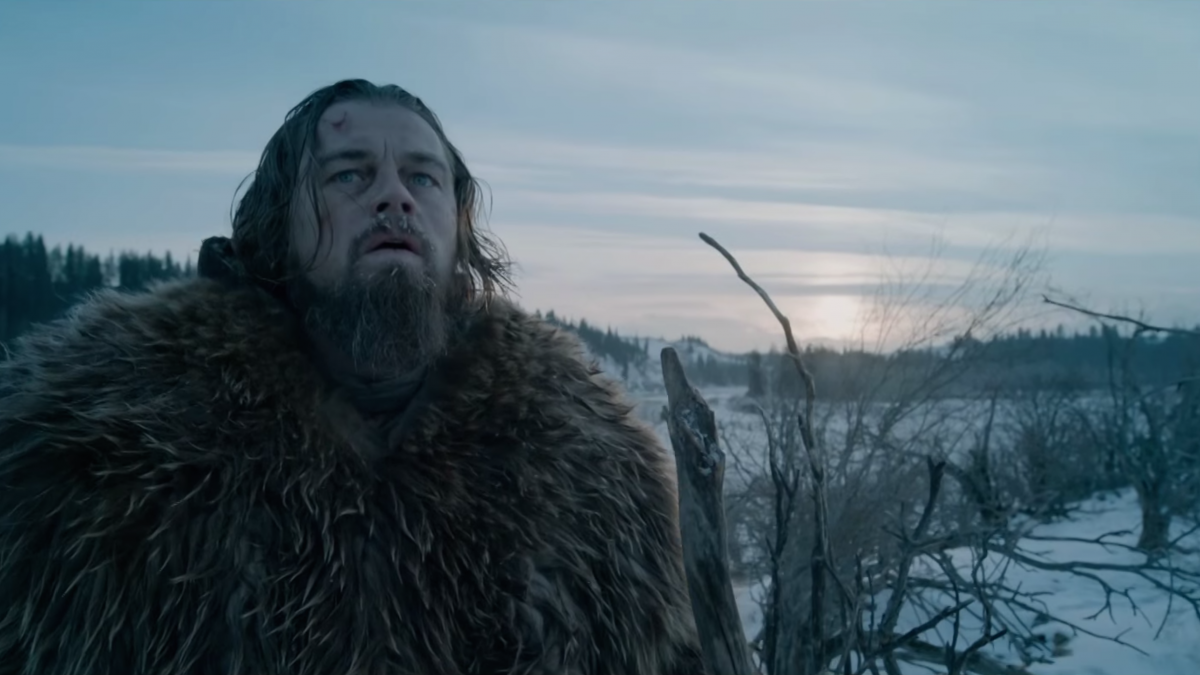The Revenant is another major success for Mexican director Alejandro G. Iñárritu
Release date: 8 Jan 2016
Director: Alejandro G. Iñárritu
Cast: Leonardo DiCaprio, Tom Hardy, Domhnall Gleeson
Running Time: 156 min.

To watch The Revenant is to surrender oneself to its cold and perilous world. It is rare to experience a film in such a visceral way. The camerawork, which cements Emmanuel Lubezki as one of the great cinematographers of our time, blends natural lighting, long takes and some seamless CGI to achieve a naturalism that remains picturesque even at its most brutal.
The camera flies around in a controlled and yet liberating fashion—one second it is giving you a close look at a character, so close in fact that his breath fogs the camera lens, and a short moment later it is roaming above the clouds, offering a majestic landscape, not yet tamed by man.
Inspired by real events, The Revenant tells at once a story of survival and one of revenge. Set in the wilderness of 1823 South Dakota and Montana, the film follows Hugh Glass (Leonardo DiCaprio), a frontiersman on a hunting expedition, as he suffers through a bear mauling only to be left for dead by two of his own men. One of them, named John Fitzgerald (Tom Hardy), is also the murderer of Glass’ only son. Nearly dying, Glass makes it out of a literal grave to embark on a long journey of retribution, facing the dead of winter and a most unwelcoming environment.

As a story of survival, it is exemplary, and recalls 2013’s Gravity, also shot by Lubezki, in which an astronaut is trapped in space, fighting to make it back to Earth—not much safer of a place, at least not in the particular time and place in which The Revenant is set.
Any audience can connect to such films on a most primal level—have you ever caught yourself holding your breath when a character is drowning or fighting for his life? Imagine that experience stretched to a feature-length film. While it may not sound like a pleasant experience, it is an immediately enthralling one, and when it involves such a mastery of filmmaking and acting as can be seen in The Revenant, it becomes something more—a testament to the human will to endure and persist.
As a story of revenge, however, the film is noticeably imperfect, never quite achieving the level of tragedy for which it reaches. While one may feel cold-hearted for not sharing the pain felt by DiCaprio’s character, who is plagued all throughout by visions of his dead wife and son, the emotional disconnect may be a result of the savagery that is witnessed throughout the film.
“God giveth, God taketh away,” says Fitzgerald as he prepares to shoot a young man whose life he had previously saved. People are killed from the start of the film to the very end, so in a context in which life is essentially worthless, a death does not resonate quite in the same way.
DiCaprio and Hardy are here at the top of their form, delivering intensely physical performances that culminate in a ruthless game of cat-and-mouse. DiCaprio is known to have been long denied an Academy Award for his consistently formidable work, but this time, he simply cannot miss. His bruised, bearded face dominates the screen in a relentless expression of agonizing and almost religious resolve, in a role that must have required constant struggle, both physical and emotional. Looking at him here is much like looking at a ghost from America’s past, a kind of man who has possibly never been seen at such close range.



